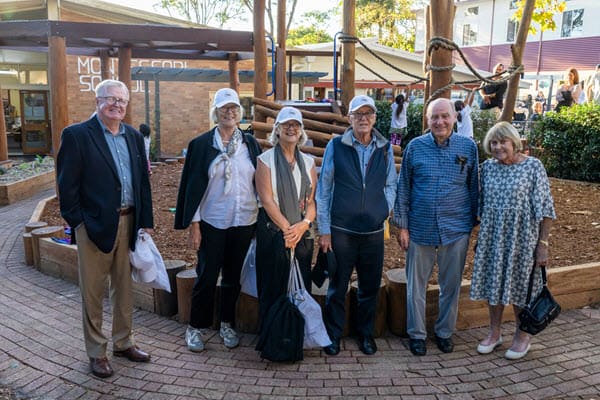This week we celebrate the birthday of our guiding founder, the visionary Dr Maria Montessori, and take time to acknowledge our school’s own founders; the progressive families who established Forestville Montessori School (FMS) on Sydney’s Northern Beaches way back in 1981.
Their vision for place where their own children could enjoy the gifts of a Montessori education continues today at FMS; one of the longest-established Montessori Schools on the east coast of Australia.

43 years on, we acknowledge the tremendous effort of our founders to set up an entire school, well before the advent of the internet or even computers for research and planning! The project required personal financial investment and risk also, with 3 families taking out a second mortgage on their homes to finance our school.
Their vision, faith and determination paid off!
Like the Montessori education system itself, FMS has ridden the waves of time and proudly continues to deliver the legacy of our founders: an authentic Montessori education to help each student reach their full potential and live a life of peace and contribution. An education for life.

As we look back with gratitude to our founders and reflect on our history, we also pay homage to Dr Maria Montessori and her timeless contribution to education, to children and to FMS.
To commemorate Dr Montessori’s birthday on August 31, we celebrate her extraordinary life and her profound influence on how we see, honor and achieve children’s potential.
Dr. Montessori was one of the first female physicians in Italy in the late 19th century. She specialised in pediatrics and psychiatry, treating poor and working-class children through free clinics at the University of Rome’s medical school.
Her work in these clinics led Dr. Montessori to theorise that children are born with incredible learning potential and an intrinsic desire to explore, discover, and learn about their world.

In 1900, she was appointed director of a University of Rome program for developmentally delayed children considered uneducable.
After observing the drab conditions of the institution and the children’s attempts to find anything of sensory interest, Dr. Montessori began studying the importance of sensory experiences in cognitive development.
She spent two years teaching the children and directing the work of teachers in the institute. Eventually, Dr. Montessori’s developmentally delayed students were able to pass the standard tests of Italian schools.
Her response? She stated that if children with developmental challenges could pass the tests, the traditional schools of the time should be able to get dramatically better results with typically developing children!
This was a catalyst for Dr. Montessori to examine how education could support, rather than stifle or repress, children’s development.

In 1907, Dr. Montessori had her opportunity. She was invited to coordinate daycare in the slums of San Lorenzo for working-class children too young for public school.
Dr. Montessori began by teaching the older children how to help with everyday tasks.
She introduced practical skills of everyday living, including hygiene and self-care. Gradually, Dr. Montessori incorporated manipulative puzzles and activities to assist children with learning different skills and concepts. The children were drawn to the materials and revelled in the process of beautifying themselves and their surroundings.
Each day the children’s behavior improved, and they begged her to show them more, including how to read and write.
As she prepared the space and the adults who supported these previously unkempt, unruly, and uneducated children, Dr. Montessori saw three remarkable behaviours emerge:
- The children became calm and peaceful
- They took care of themselves and their surroundings
- They developed concentration and a love of learning

Dr Montessori continued to experiment and design new learning materials that nurtured children’s natural desire to learn.
As news of her success in San Lorenzo spread through Italy, dignitaries from other countries began visiting to see this miracle firsthand.
Around age 40, Dr. Montessori left a doctor’s career and a professorship at the University of Rome to continue her work for children. Throughout the rest of her life, she offered courses and lectures, wrote books, and trained educators, all the while insisting that the focus be on children, rather than on her.
Through scientific investigation, the study of available research, trial, error, and observation, Dr. Montessori saw that children across ages, cultures and countries flourish in a setting that provides just the right support at critical times of development.
Dr Montessori’s child-centred education, grounded in the science of human development has withstood the test of time and culture.
Today there are tens of thousands of Montessori schools stretching to every corner of the globe. More than 100 years on, the work of Dr Montessori is recognised the world over as a progressive approach to education that helps children achieve their fullest potential and live a full and well-rounded life.


